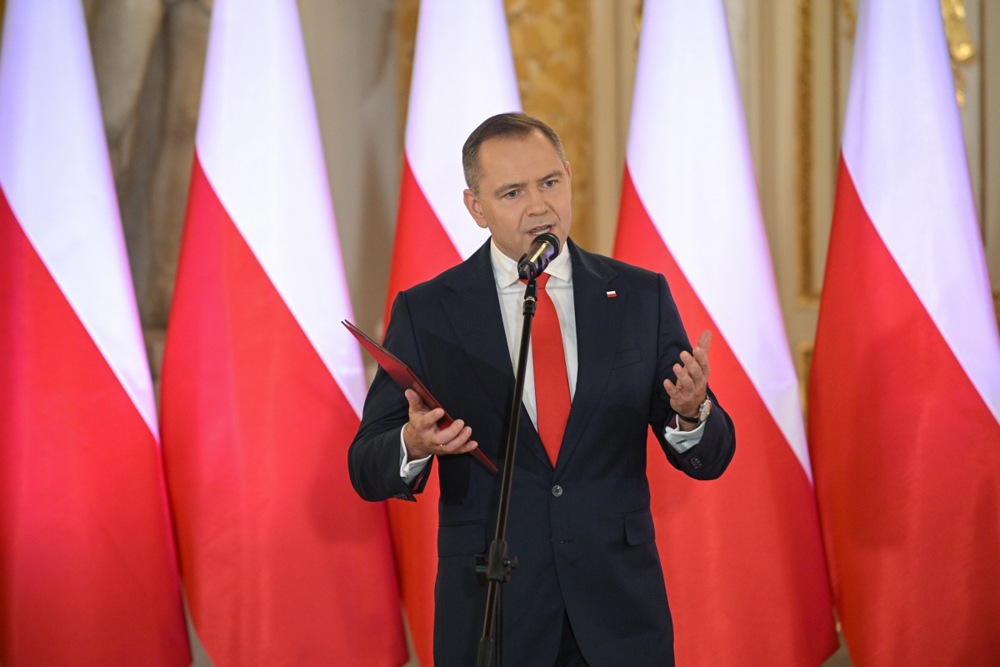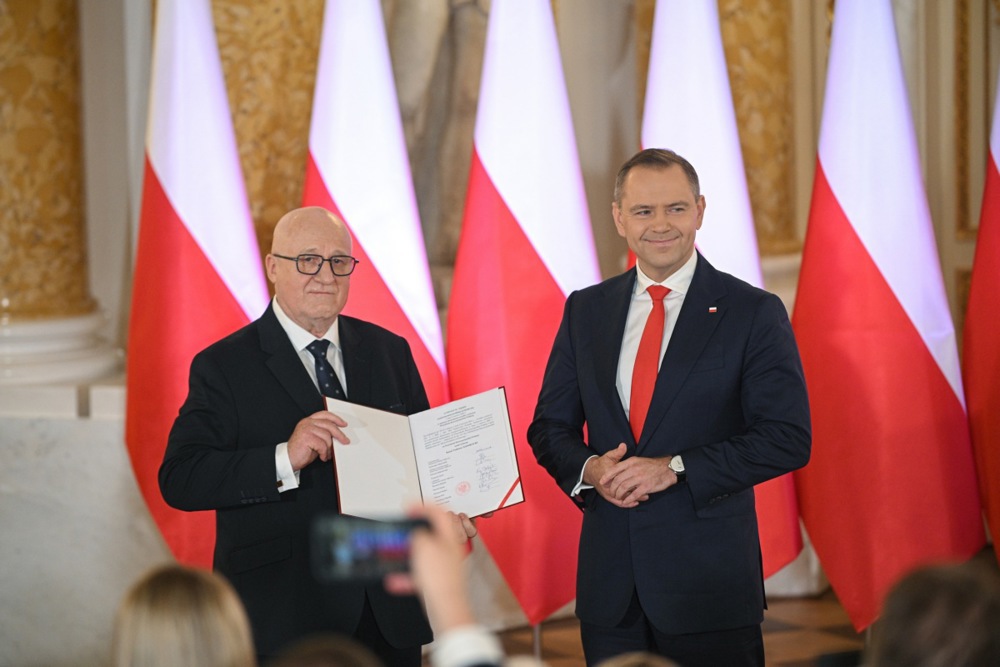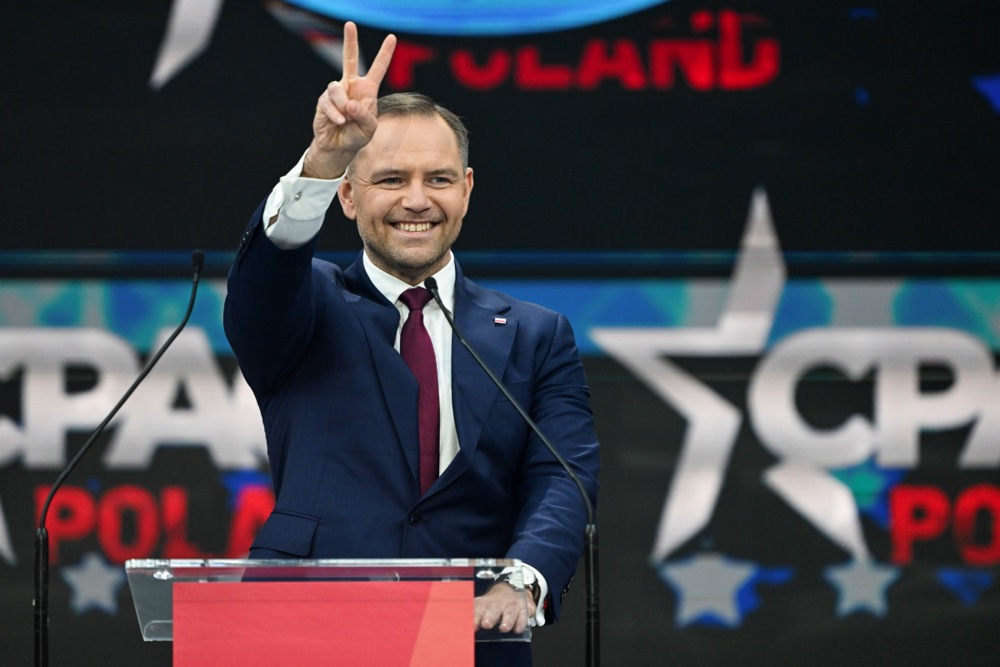Polish Prime Minister Donald Tusk has sacked a third of his cabinet and promoted foreign minister Radosław Sikorski to Deputy Prime Minister.
The moves appeared an attempt to breath fresh life into a ruling centre-left coalition rocked by the the defeat of its candidate in the presidential elections in the spring.
Introducing the changes in his government, on July 23 Tusk said: “This is no marketing exercise. We have to reset ourselves and unite to face security challenges at home and abroad and must not become defeatist just because we have lost an election as there are real differences with our foes”, meaning the opposition PiS and Confederation parties.
The PiS called Tusk’s move “an attempt to breath fresh life into a corpse”, alluding to the problems within the ruling coalition that led to several delays before the reshuffle was finally announced.
The shake-up had been signalled for months, billed as a “new opening” for the government that lost the presidential election to the PiS. That spurred a further fall in ratings and increased tensions between the four parties that make up Tusk’s administration.
The changes announced on July 23 included a reduction in the number of ministries from 26 to 21 via mergers and the creation of a new energy ministry in place of the ministry of industry.
Tusk fired justice minister Adam Bodnar, replacing him with former Supreme Court judge Waldemar Żurek, and health minister Izabella Leszczyna. Her role has been taken by senior health service manager Jolanta Sobierańska-Grenda.
The equality minister Katarzyna Kotula has seen her portfolio reduced and moved outside of the cabinet.
Both Bodnar and Leszczyna had been criticised for failing to make progress in sensitive areas affecting the government’s poll ratings.
Sports minister Sławomir Nitras has been punished for leading the failed presidential campaign of Warsaw Mayor Rafał Trzaskowski against the government’s candidate.
There was also change at the interior ministry with the removal of Tomasz Siemoniak. He has been demoted to the role of minister co-ordinating the work of the special services and replaced by the Tusk party’s General Secretary Marcin Kierwiński.
The culture minister Hanna Wróblewska has been removed after clashing with sections of the artistic community and replaced by her deputy Marta Cieńkowska. The agriculture minister Czesław Siekierski has been replaced by his younger deputy Stefan Krajewski.
The Minister of State Assets, Jakub Jaworowski, and the development minister Krzysztof Paszyk have also left the government.
Industry minister Marzena Czarnecka’s department has been dissolved while a new department of energy will be headed by Miłosz Motyka.
There was promotion for the high-profile foreign minister Radosław Sikorski, tipped by many as Tusk’s potential successor as PM, to co-ordinator of foreign and European policy.
Sikorski, a graduate from Oxford and married to well-known US writer Anne Applebaum, previously worked as a war correspondent covering the rebel forces fighting the Soviets in Afghanistan.
He served as minister of defence in a PiS government before defecting to Tusks’s party in 2007. There he served as foreign minister between 2007 and 2014 before becoming Speaker of Parliament. He was forced to depart that role following the “Waitergate scandal” in which he was illicitly taped in one of Warsaw’s top restaurants.
The tapes betrayed Sikorski’s colourful use of language about Poland’s US allies. He told his friend and government colleague, finance minister Jacek Rostowski: “The Polish-US alliance isn’t worth anything” and that Poles were “behaving like negroes” towards their US allies and were “total suckers”.
The government, made up of the Civic Coalition (KO, the party led by Tusk), the centrist Poland 2050 led by speaker of parliament Szymon Hołownia, the centre-right Polish People’s Party (PSL) led by defence minister Władysław Kosiniak-Kamysz and the Left party, came into office in late 2023, replacing the PiS who had held power for eight years (2015-2023).
The coalition was united primarily by the goal of replacing PiS, prosecuting PiS government officials for alleged wrong-doing while in office and improving Poland’s standing inside the European Union. It has appeared to find it difficult to unite convincingly around any other policy objectives.
Tusk had hoped that if his presidential candidate Rafał Trzaskowski won spring’s election it would have enabled his government to make sweeping changes in the judiciary and force through legislation on civil partnerships for same sex-couples, for example, and liberalisation of abortion laws.
But Nawrocki’s win has seen the incoming new President exercise the power of veto. That means the government would likely continue to face a major blockage to its agenda in the shape of the Head of State.
Hołownia’s meeting with PiS leader Kaczyński in late June about forming an alternative government, apparently in retaliation for Tusk pressuring him to delay Nawrocki’s inauguration, underlined the fragility of the ruling coalition.
Having reshuffled the pack, Tusk will face another challenge within the ruling coalition in November when, according to a coalition agreement, Hołownia is set to vacate the Speaker’s chair so the ruling coalition can install the leader of the Left party, Włodzimierz Czarzasty.
At the same time, Hołownia’s party was assured that one of its members would secure the post of Deputy Prime Minister as compensation.
Hołownia has been offered that position but has so far said that he would only take it up if all leaders of the coalition parties were behind the government – but Czarzasty has said he was unwilling to guarantee that.





